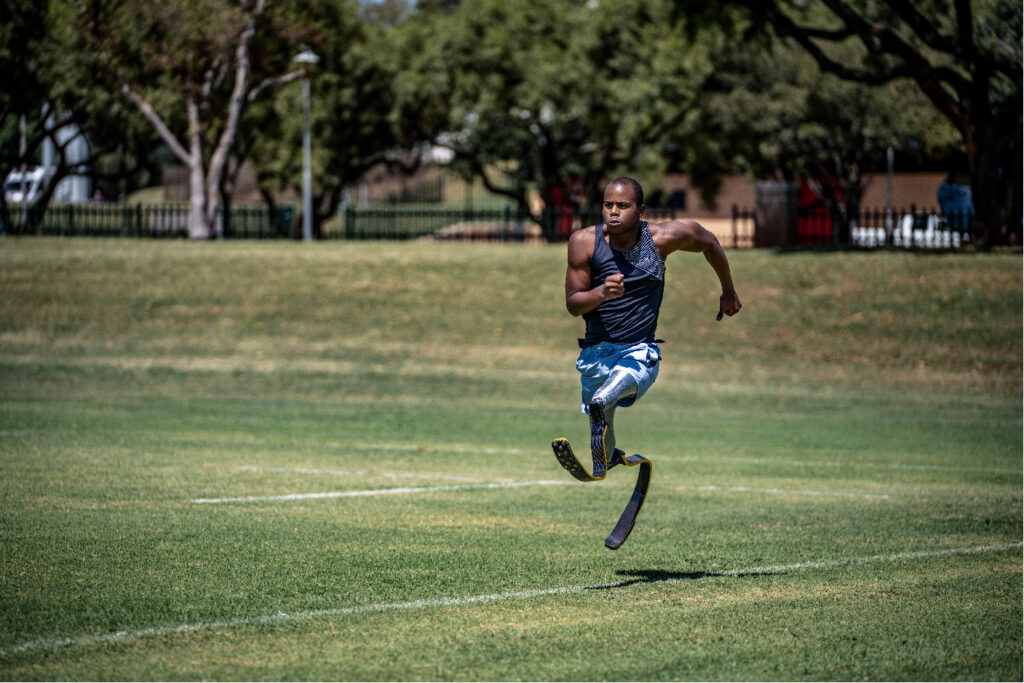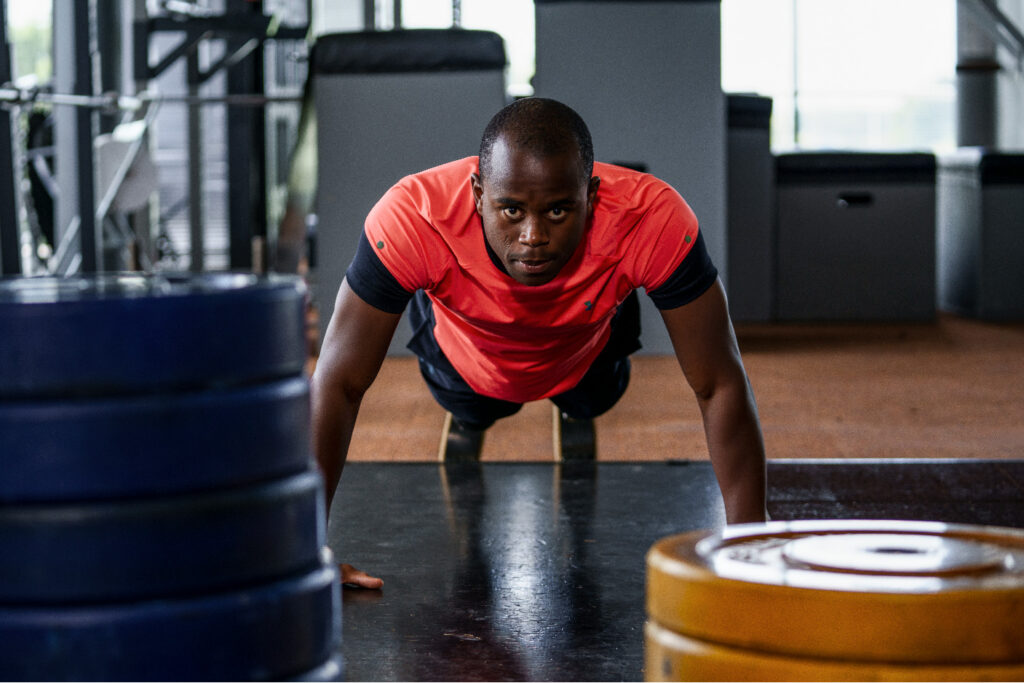Our Own Rising Phoenix
Documentary star Ntando Mahlangu is aiming for Tokyo Paralympic success – and knows how to get it.
Paralympian Ntando Mahlangu is one of South Africa’s brightest athletics stars. With Paralympic experience already under the belt at the age of just 16, in Rio in 2016 – where he medalled, with a silver in the 200m – he is now all set for Tokyo this year, where his biggest goal will be to bring honour to those who support him, and raise awareness of the need for opportunities for disabled people worldwide. Ntando recently featured in the powerful Netflix documentary Rising Phoenix.
Runner’s World: You were a Paralympian at just 16 years old. What do you recall from that Rio experience?
• Ntando Mahlangu: It was a great learning phase in my athletics career. I learnt a lot; and after Rio, I went back home and had to fix a lot of stuff – mentally, and also on the track. So it was a big step into getting a lot of things right. A great experience for me, and a good learning phase.
RW: That all happened just four years after you were able to leave your wheelchair and wear prosthetics for the first time. Do you recall what that felt like? How did you want to express yourself with your new-found mobility?
• NM: I’d never walked in my life before, so for me to just be able to walk was incredible. It was one step in my life I’d really wanted to take – literally! – and it made me and my family very happy on that special day.
RW: Did you have a lot of support, in becoming an athlete?
• NM: To be honest, the community I came from didn’t support that structure – because there is no structure there. That’s why we moved to Pretoria. There, the community allowed us to develop, and to become better people.
RW: You’ve said your roots are strong. How are you motivated by representing those who support you?
• NM: Well, I think it’s very easy. I don’t run for myself. I run for everyone; and that’s my motivation, that pushes me forward. Always knowing that I’m representing a much bigger thing than just myself. If you take it that way, the motivation is very easy.

RW: Your self-confidence seems to match your strong abilities and performance. What feeds that confidence?
• NM: Yes. I think, the confidence thing… it’s not only about me. It’s bigger than that. It takes you to a place where you’re involving your coach, your family, your manager, your physiotherapist. So it’s a lot of people who are putting in the work, behind the scenes, to make sure I’m confident when I get to the track. Or wherever I may need it.
RW: What are your interests, outside of the athletics arena?
• NM: I love spending time with my family. That makes me very happy. I don’t get to spend a lot of time with the family because I’m always in Pretoria for school. And when I’m done with school, there’s athletics. So whenever I get time, I go home, and that’s my happy place outside of the sports arena. I’m a family guy, can’t you see?!
RW: Who are your sporting (or other) heroes?
• NM: I have to point this one towards my – my – soccer side. I think Mamelodi Sundowns are a very strong team mentally, and it shows in the way they play so well on the field. And I look up to that kind of structure.
RW: What does a typical training session look like for you? Is it with a squad, or solo? And who is your coach?
• NM: It’s five times a week, which works like a bomb. Up to two hours, but we try not to push the sessions too long. So that works out to about 10 hours on the track a week. But not solo – we’re a team of five, and three of us train together. My coach is Cathy Landsberg. And she’s been there since the beginning.

RW: Do you feel there’s progress being made, in terms of equal rights for all?
• NM: Most definitely not. To be precise, I don’t think there are equal rights between disabled athletes and able athletes in SA.
I could name a lot of things… But we’re working with the relevant bodies, to make sure we look after disabled athletes. There’s a long way to go, but you have to start somewhere. I’m happy, even though it doesn’t look good right now. I think we’ll get things right.
RW: What does the word ‘Tokyo’ ignite inside you currently?
• NM: Yho! A lot of excitement.
RW: What is the message you feel you’d most like the world to hear?
• NM: I think the world is very negative. People need to change their mindset, and be positive. That’s the most important thing. Positivity is what keeps me going each day, you know? Staying positive, and creating opportunities for disabled people – not only in South Africa, but all over the world.
___________________________________________________________________________________________________________
OUR PARALYMPIAN SUCCESS STORIES
We’ve had more than a few Paralympian successes already this millennium.
Charl du Toit
Sprinting.
2012. Two golds.
Ilse Hayes
Sprinting and long jump.
2004, 2008, 2012, 2016. Two golds, four silvers and one bronze.
Oscar Pretorius
Sprinting.
2004, 2008, 2012.
Six gold, one silver, one bronze.
Hilton Langenhoven
Long jump and sprinting.
2004, 2008, 2012, 2016. Four gold, two silver.
READ MORE ON: Ntando Mahlangu paralympics

